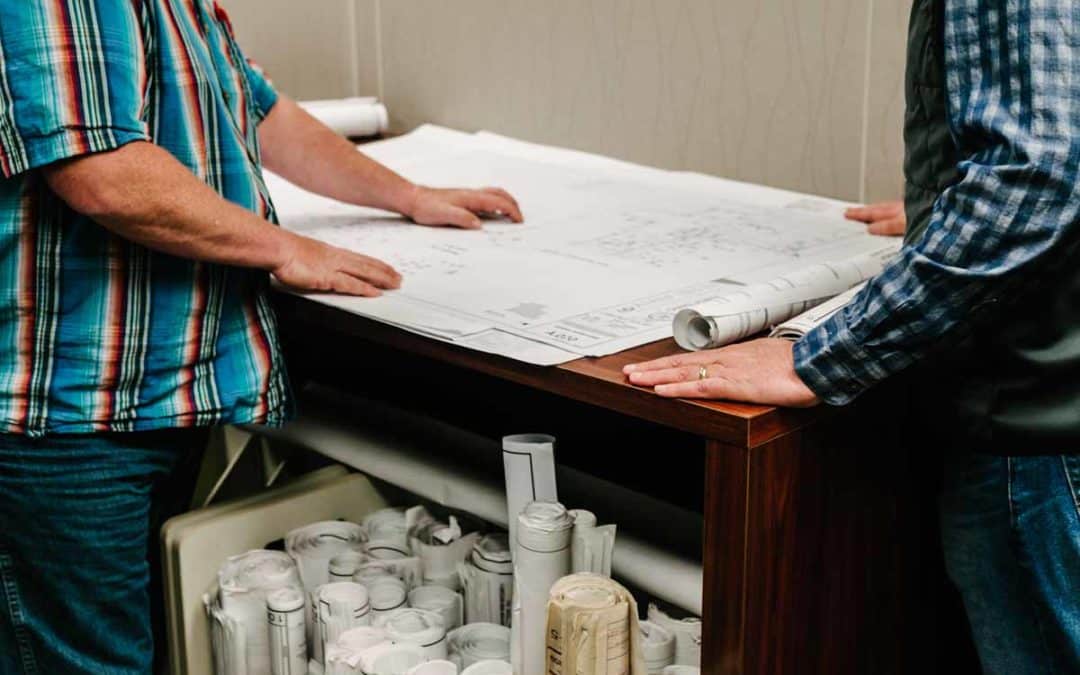A fire alarm system is your first line of defense against the danger of fire. Before you can react to the fire, you must first know it is there.
But, your fire alarm system does more than just announce a fire. There are actually four main ways your fire alarm works to keep you and your building safe.
The 4 Purposes of Your Fire Alarm System
The four ways your fire alarm system works to protect your property and its occupants from the dangers of fire are by detecting fire, alerting occupants, managing risk, and notifying the fire department.
#1 Detect Fire
Your fire alarm system is designed to detect fire in two main ways: smoke and heat. It should also have the capability of manual pull, in case a fire is observed before smoke or heat reaches the sensors of the system. Other systems are activated when movement in the sprinkler system is detected, indicating that the sprinklers are responding to a fire.
#2 Alert Occupants
When the fire alarm system detects smoke, heat, or water movement, it alerts occupants of the building using both audible and visible alarms. These alarms will be bright, loud, obnoxious, and impossible to ignore, which help mobilize individuals to follow your evacuation plan. Using both types of alarms ensure that every person in the building is alerted.
#3 Manage Risks
Your building’s fire alarm system works in a third way to protect you: by reacting to potential risks using control measures. When the alarm is activated, some systems perform a set of tasks that help prevent fire and smoke from spreading as well as protect occupants, such as: automatically shutting doors in different zones, powering off ventilation and air conditioning, or redirecting elevators to bring cars to a designated level.
#4 Notify Authorities
The fourth purpose of your fire alarm system is to notify authorities. This ensures the fire department is en route as quickly as possible, so they can respond and extinguish the fire before it becomes an even bigger threat.
Fire Alarm System Basics: Essential Capabilities of Your Fire Alarm System
Every fire alarm system works to deliver on those four purposes listed above, but what many don’t know is that your fire alarm system doesn’t just alert you of a fire. It’s also able to identify both supervisory and trouble conditions. Let’s take a look at these three basic capabilities of a fire alarm system. For a visual representation, we recommend this guide from the NFPA.
- Alarm. An alarm condition is exactly what was outlined in the section above. In the event that there is an immediate threat to life, property, or mission, the fire alarm system will sound the alarm, notifying occupants to escape, and letting the authorities know they need to respond.
- Trouble. A trouble condition means that something is wrong with the system itself. Fire alarm systems necessarily employ a trouble condition to alert you or your building manager that while there may not be an immediate danger, you’ll need immediate inspection and repair of your system.
- Supervisory. A supervisory condition — further explained by the NFPA in this Guide to Fire Alarm Supervisory Conditions — means that the system the fire alarm monitors has some sort of issue. This could signal anything from low or high pressure in the suppression system to a malfunction of the fire pump.
Commercial fire alarms are part of an intuitive fire suppression system that is constantly working to keep your building — and its occupants — safe. That’s why it’s so important to ensure you’re taking the time to properly maintain and repair your fire alarm system.
Getting the Most Out Your Fire Alarm System
Fire alarm system technology is constantly changing. In order to guarantee that your system is in optimal condition, it’s essential to continue to maintain and upgrade it.
Inspect All Equipment Regularly
Your fire alarm system requires semi annual inspections to maintain compliance with local fire codes. Stay current with regular inspections so that your facility is doing everything it can to protect people and property.
Train Staff to Respond Appropriately
Make sure all staff members or residents understand how the alarm system works and sounds and that they know what to do if it is activated. Also make sure that pull alarms are conveniently placed throughout the building and that fire extinguishers are up-to-date and accessible to those who know how to use them.
Looking at fire alarm systems for your commercial building or facility? Vanguard Fire & Security Systems can help. Contact our team for help choosing the right fire alarm system, installing it in your facility, and training your staff and residents on how to use it.


